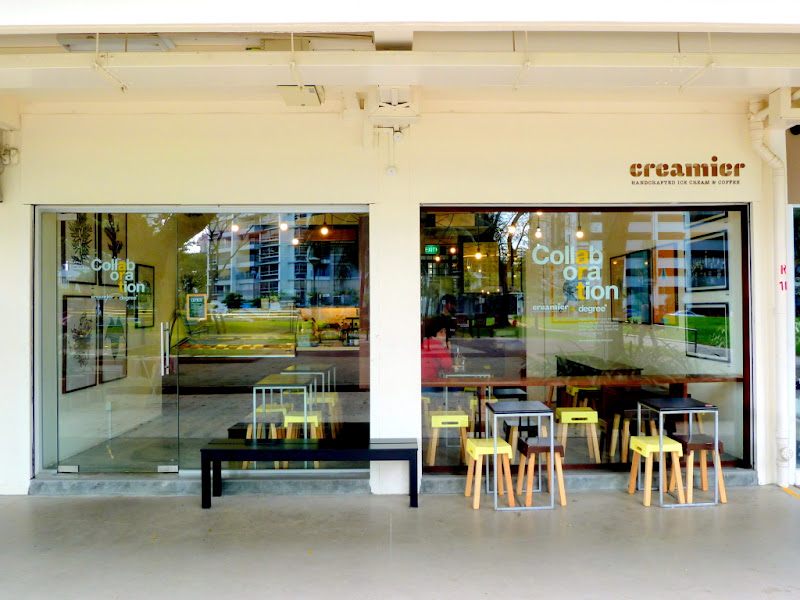Alex Garcia’s photo-safari through the Austin neighborhood of Chicago was, ostensibly, part of an “an ongoing investigation” into the ways in which that neighborhood has been left out, “neglected by the city and its planners.” This may indeed be so. These photographs may, upon being placed in the broader context of some progressive development project, appear to be something other than gawking at black bodies, something different that photographing those black bodies without their consent or knowledge and then disseminating the images of those black bodies across the internet, and making money from doing so.
Then again, maybe Alex Garcia’s intentions are irrelevant. Maybe no one cares what he was thinking. Maybe the problem is not what he was thinking, but the fact that he didn’t care what his subjects were thinking. He didn’t ask them if he could photograph them. He didn’t know if they minded. He didn’t care that he didn’t know whether they minded.

 I suspect that Garcia would say that he couldn’t ask this person if he could take a picture of him. And, my God! Who would dare to ask this shirtless, out-of-focus youth–with his saggy pants, a wild “O” on his lips, and all that non-Caucasian skin–what man amongst us would dare approach such a beast, such a wild fury, and ask permission to take his picture? He would surely smash you on the spot.
I suspect that Garcia would say that he couldn’t ask this person if he could take a picture of him. And, my God! Who would dare to ask this shirtless, out-of-focus youth–with his saggy pants, a wild “O” on his lips, and all that non-Caucasian skin–what man amongst us would dare approach such a beast, such a wild fury, and ask permission to take his picture? He would surely smash you on the spot.
Or, worse, he would turn into a human being. That human being might tell us to go fuck ourselves, he might desire, or worse, he might pose. He might smile, and that inarticulate cry on his lips might become comprehensible speech, laughter, confusion, prideful disdain. He might engage us in conversation, and we might feel bad, then, that we were going to take a picture of his body, send it across the internet, and sell advertising space on it. Who knows what he might do! No, Alex Garcia wanted a picture of that youth, where he was, as he was, and he got it. And he didn’t find out if it was all right to do so, because he didn’t ask.
The google car didn’t care if anyone was on that corner. It just wanted a picture of the street, the buildings, the sidewalk.

I started trying to match images from google’s street-view because I was curious if it could be done. It turned out it was easier than you’d think; there’s a lot of information in these pictures, and if you spend enough time trawling through this neighborhood on google-maps, you eventually find what you’re looking for. But nearly every time I matched photo to location, I found the same thing: an empty tableau, barren of all the bodies and color that had drawn Alex Garcia’s camera.
This was the first realization. The google car was taking photographs of a place. Alex Garcia was taking photographs of bodies. You can tell this is so because all of his pictures are filled with bodies, with buildings and streets in the background. The google car doesn’t care if anyone is there or not. And they mostly are not. But Garcia only takes pictures of bodies, or he only selects pictures of bodies to show us, or some combination of the two.

 He prefers bodies in tight clothing to buses. That’s what I’ve learned from this juxtaposition. The google-car is okay with taking pictures of buses.
He prefers bodies in tight clothing to buses. That’s what I’ve learned from this juxtaposition. The google-car is okay with taking pictures of buses.
A commenter, “Stan B”:
My god Alex, if that’s the premise you start from! This just feels (and is) so utterly wrong in oh so many ways…
Do you know of any award winning documentary work that strove to show the humanity of its subjects using a concealed camera inside a moving and… partially concealed vehicle? All these photos do is provide physical likenesses of the people shown- period. After all is said and done- we know nothing more about any of these people you’ve surreptitiously photographed, or what they’ve been through. Ultimately, all these photos serve to do is perpetuate and emphasize racist stereotypes. Viewers will not know the everyday struggles of the hard working people in these communities- they’re not pictured. These photos present a voiceless people who will be interpreted by the public however they choose, ie- look at all “those people” doing nothing but hanging out, partying and selling dope in the middle of the day! Those are the images they will “see,” often misinterpret and choose to remember (not a couple of church photos). And you have denied them any kind of a voice to explain, provide context or prove otherwise- a situation they are already most familiar with.
I am certainly not denying this a difficult, dangerous, if not impossible assignment on short schedule, but if you can’t do it in some kind of open, forthright manner, then the ethical thing would have been to tell your editor to get someone else who could operate there- or at the very (very) least, be open and honest enough to call it what it is- surveillance work, pure and simple. It is not candid photography, it is not street photography in any traditional manner- and I certainly hope it is not the future of photojournalism. Candid photography requires that one be visible in the general area, and if noticed, the photographer can be questioned, and in turn can converse, enlighten, and be enlightened. You’ve intentionally removed any chance of that. You sought to work undercover, in total secret, unknown and unseen.

 Matching the photographs teaches you how much craft went into Alex Garcia’s shooting. He didn’t just drive around clicking wildly. He found scenes, even composed them. These two people’s body language is a short story. Not a good one, necessarily. But the google car has no compositional sense at all, and it doesn’t know the first thing about using the light.
Matching the photographs teaches you how much craft went into Alex Garcia’s shooting. He didn’t just drive around clicking wildly. He found scenes, even composed them. These two people’s body language is a short story. Not a good one, necessarily. But the google car has no compositional sense at all, and it doesn’t know the first thing about using the light.

Is it legal to take pictures of people without asking them, and to sell those pictures, and to own those pictures? I mean, probably. Why not? This is American. An awful lot of things are legal if you’re the right sort of person. Plus, you can make the case that taking pictures of non-consenting women’s private areas is protected first amendment speech, if these tempting jezebels went outdoors into the street:
“Menken maintains that the laws regarding taking unwanted pictures of women are outdated and actually protected under the First Amendment. Menken told the justices that peeping Tom laws protect women and men from being photographed in dressing rooms and bathrooms who are nude or partially nude. However, the way the law is written right now it does not protect clothed people in public areas.”
This guy’s probably wrong, of course, but who the heck knows. Do you know? Are you a lawyer? If not, the answer is no (and even if you are, the answer probably is still no). “Legal” has nothing to do with most of what happens in the world. Legal comes later. Before that, possession is ten-tenths of the matter.

I didn’t want to write anything in this post. I wanted to put the photos next to empty backgrounds, and say NOT A DAMNED THING ABOUT IT, because you have to think about what it is that these photos made you see. Putting Alex Garcia’s photos next to images produced by google lets you isolate the craft that went into making them. You can see, if not the intention, the sense of evaluation that saw a moment it couldn’t bear to miss. If I told you it was “racist,” what would that accomplish?
Maybe it isn’t. And maybe of course it is. What isn’t touched by the racism of our society? Certainly not the photographs of people in a neglected, predominantly African-American neighborhood, taken from a car with tinted windows and a camera rigged to be able to click-and-shoot while driving. But maybe calling it “racist” is so obvious that it isn’t anything else. I don’t know.

 It occurred to me, for a moment, that the Chicago Tribune might object to my use of their images, and have a case. And then it occurred to me that fuck that. It would be nice to think that I had a more coherent intention than that. But I didn’t. I still don’t. I didn’t want to write text in this post, because even I can get tired of hearing my own voice, my own opinions. Do you need me to tell you what to see? I just wanted you to look.
It occurred to me, for a moment, that the Chicago Tribune might object to my use of their images, and have a case. And then it occurred to me that fuck that. It would be nice to think that I had a more coherent intention than that. But I didn’t. I still don’t. I didn’t want to write text in this post, because even I can get tired of hearing my own voice, my own opinions. Do you need me to tell you what to see? I just wanted you to look.
But it seems it cannot be helped. WORDS are necessary. if you simply reproduce these images on a web-site, without text, you will get a letter from the Chicago Tribune’s lawyers, telling you to stop. They will tell you that “Your claim of fair use is deeply flawed for a number of reasons.” Because of LAW. But if you add text–judging from this example–you are fine.
I reproduced seven photographs, and so did this guy. But he added text, WORDS, and those pictures are still there, a month later. So I have added WORDS, too. I hope we are all happy now.
















